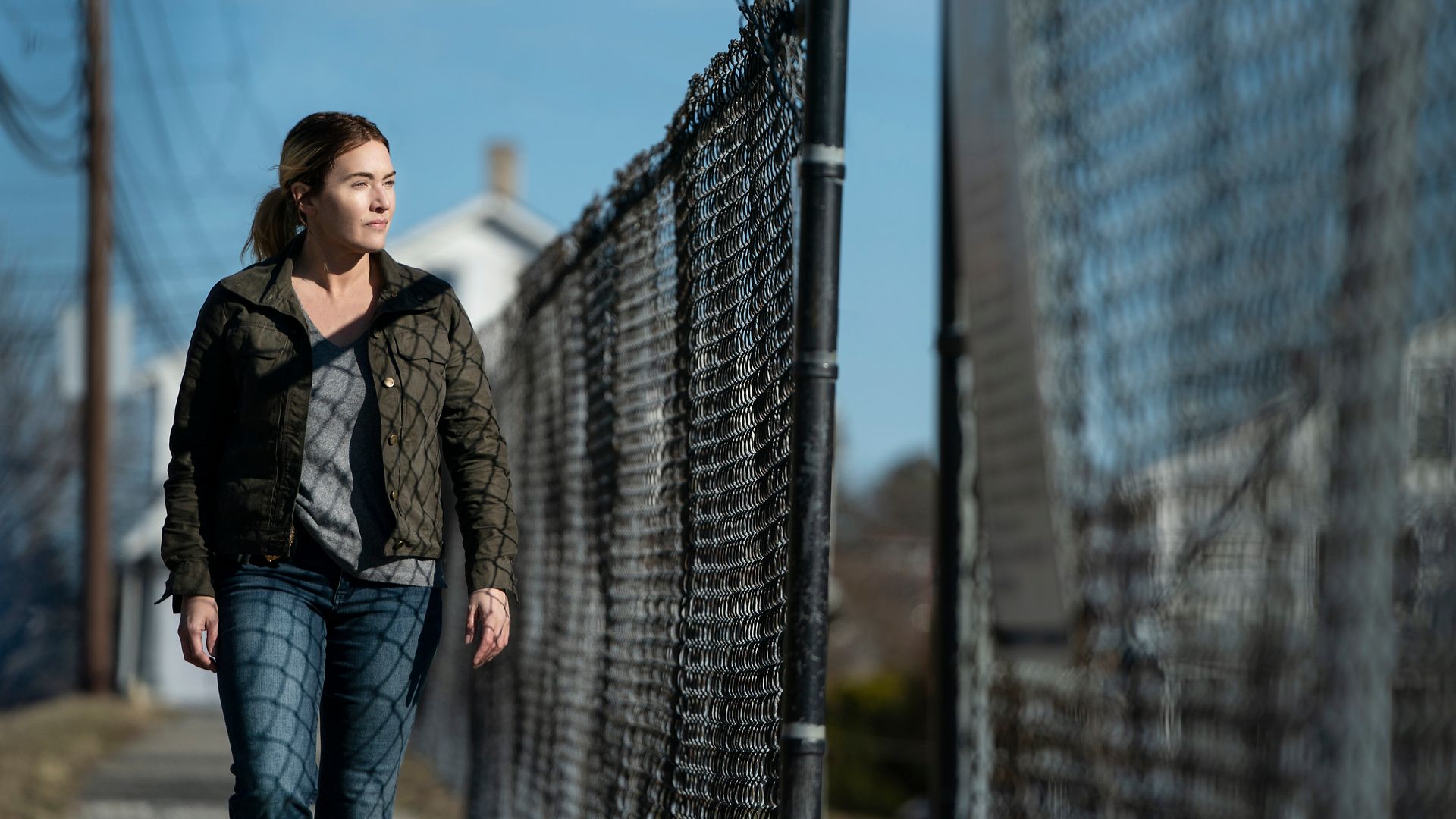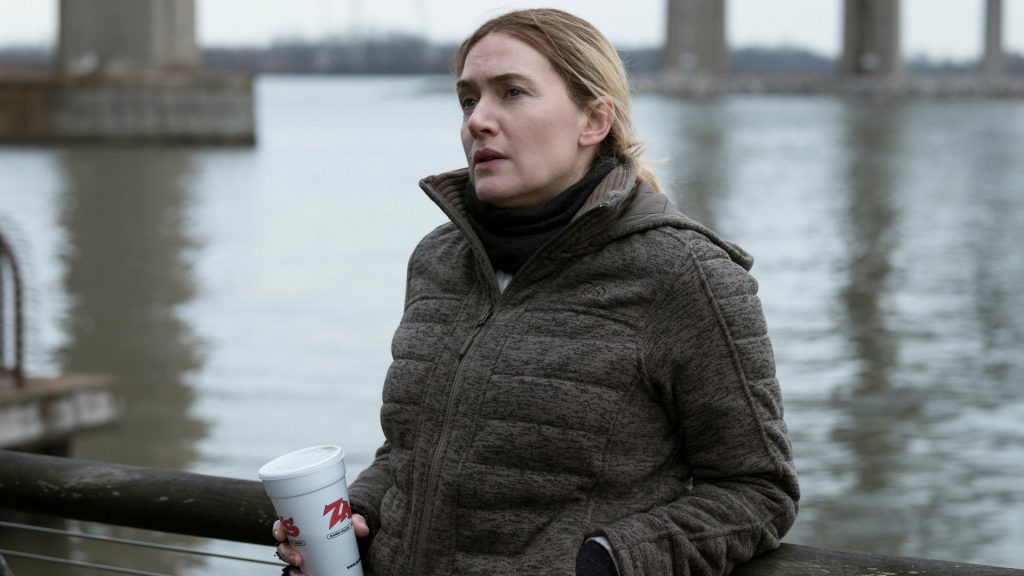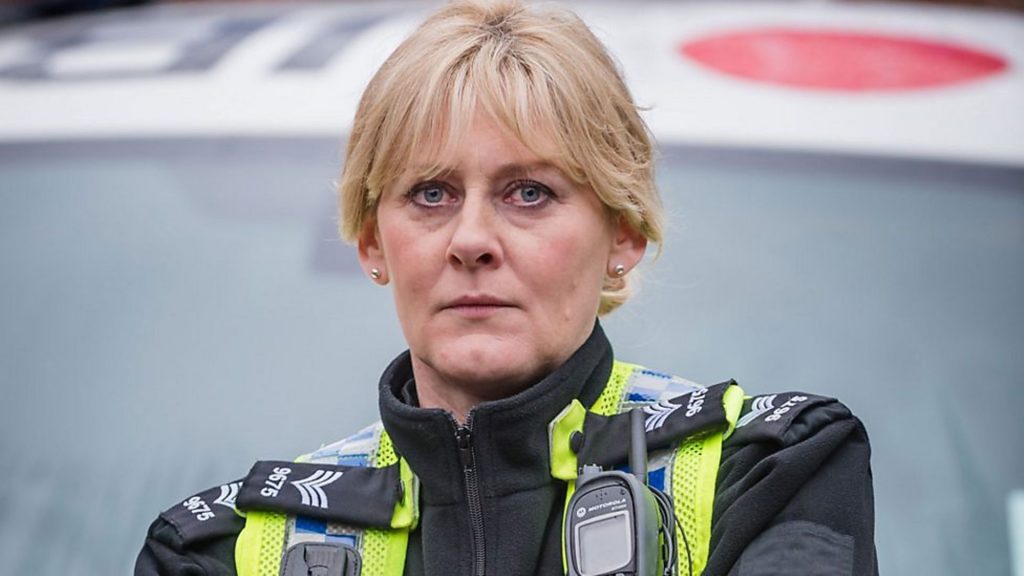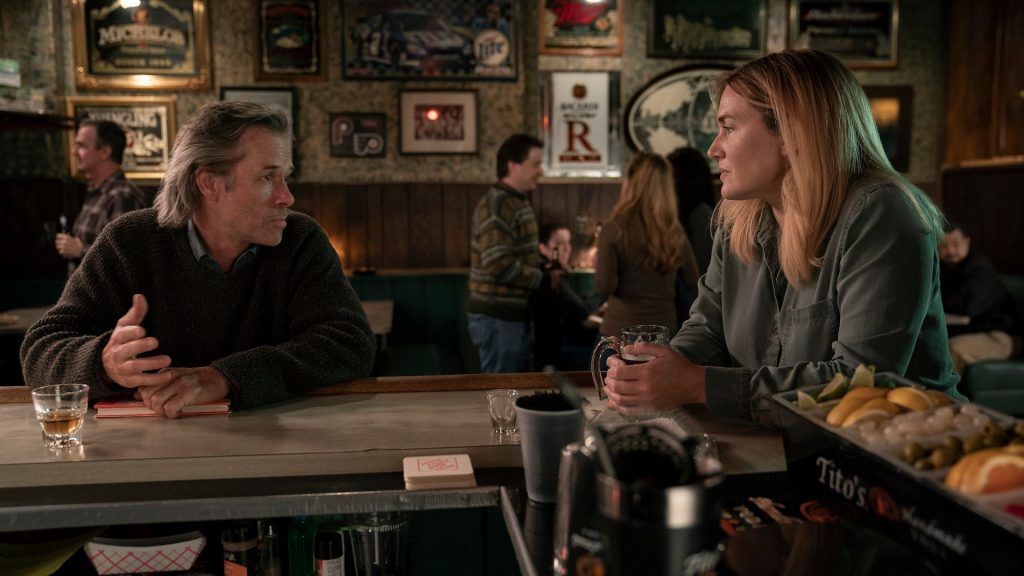
Kate Winslet is brilliant in Mare Of Easttown – but then so was Sarah Lancashire in Happy Valley, the BBC show from which Mare has clearly taken a few pointers
Does this sound familiar? You’re sat watching television. It’s a crime drama starring an actress you’ve never really disliked but never gone out of your way to watch. At best your feelings towards her could be described as ambivalent. But, as it unfolds, something is happening to you. Everything she does, everything she says and every time she reacts or responds to another character or event, you are overcome with a feeling that you are watching something and someone very special.
By now I’m sure most of you will have correctly surmised I’m talking about the Sky Atlantic/HBO hit Mare of Easttown starring Oscar,- BAFTA- and Golden Globe-winning actress Kate Winslet.
Like me, many friends have confessed to never really having any strong opinions about Winslet. We all knew her of course – she was the selfish Rose in Titanic who easily could have saved Jack if she’d budged over a bit on that massive floating door. But were any of us fans? I certainly wasn’t and I don’t think I’d ever met one.

But then she burst on to my screen as Mare and totally blindsided me. Where had this performance come from? What made it so good? But most of all why did I feel a nagging sense of deja vu?
I had definitely felt like this before about someone else doing something very similar – but who and when?
And then I remembered – it was back in 2014. But it wasn’t called Mare of Easttown and it didn’t star Kate Winslet. It was called Happy Valley and the star was Sarah Lancashire.
I had sat on the same sofa, in the same room completely mesmerised and repeatedly asking myself when did Lancashire get this good? I knew her turn as Raquel – the breezy, ditzy blonde barmaid in Coronation Street – had been a bit special, but this was next-level acting in a brilliant drama. An opinion shared by viewers and critics who heaped praise on her and helped the series and star scoop armfuls of awards including several Baftas.
Like Winslet, Lancashire was playing a local female copper, Catherine Cawood, and like Mare, Catherine was raising her grandchild because her daughter (son in the case of Mare) had committed suicide. Also like poor Mare, Catherine was living with a no-nonsense relative – a sister who just like Mare’s mother, loved her unconditionally but had no problem putting her in her place when required.

Both women had battle-scarred troubled teenage kids who vacillated between rejecting them and needing their support, usually when they were neck-deep in a case and couldn’t give it.
And underpinning this was the biggest similarity of all – two brilliant cops solving brutal murders against young women while doing their best to keep their shit together as they caught, dodged or simply coped with all the other shit life was throwing them.
The storylines in Happy Valley and Mare of Easttown differed considerably but the similarities between the two main characters seemed to resonate with us. It’s not as though they are the first in a line of great female coppers. From Juliet Bravo through Jane Tennison to Sarah Lund, TV has a plethora of strong-willed no-nonsense feminist icons who can mix it with Morse or tussle with Taggart.
But writers Sally Wainwright (Happy Valley) and Brad Ingelsby (Mare of Easttown) have expertly imbued their heroines with messy, complicated personal lives that magnify the idea that the only place where they can escape and find some semblance of order is through their detective work.
At home, life isn’t fair. Loved ones can be allies one minute and enemies the next, but when they work a case it’s clear who the baddies are. There is no ambiguity and however brutal, distasteful and upsetting the crimes, there is a clear victim so there will be a clear perpetrator.
Now all they have to do is find them – not through a Sherlockian innate ability for puzzle-solving but by good old fashioned detective work. As single parents, neither women have the luxury of being slapdash about anything and this is the same no-nonsense attitude they bring to their police work. Because when you’re used to life and loved ones letting you down, mistakes or wrong assumptions can prove costly and women like Mare and Catherine only make mistakes when they’re desperate.

Permanently knackered and often decidedly prickly, you underestimate them at your peril because these are women who will go toe to toe with you even if you’re a violent psychopath brandishing a gun.
Both shows are fascinating character studies of women we very rarely see on screen but there really needs to be more of them And if either Wainwright or Ingelsby are listening then yes, that was a clumsy request for more Mare and Catherine, please.
Warning: Illegal string offset 'link_id' in /mnt/storage/stage/www/wp-includes/bookmark.php on line 357
Notice: Trying to get property 'link_id' of non-object in /mnt/storage/stage/www/wp-includes/bookmark.php on line 37






